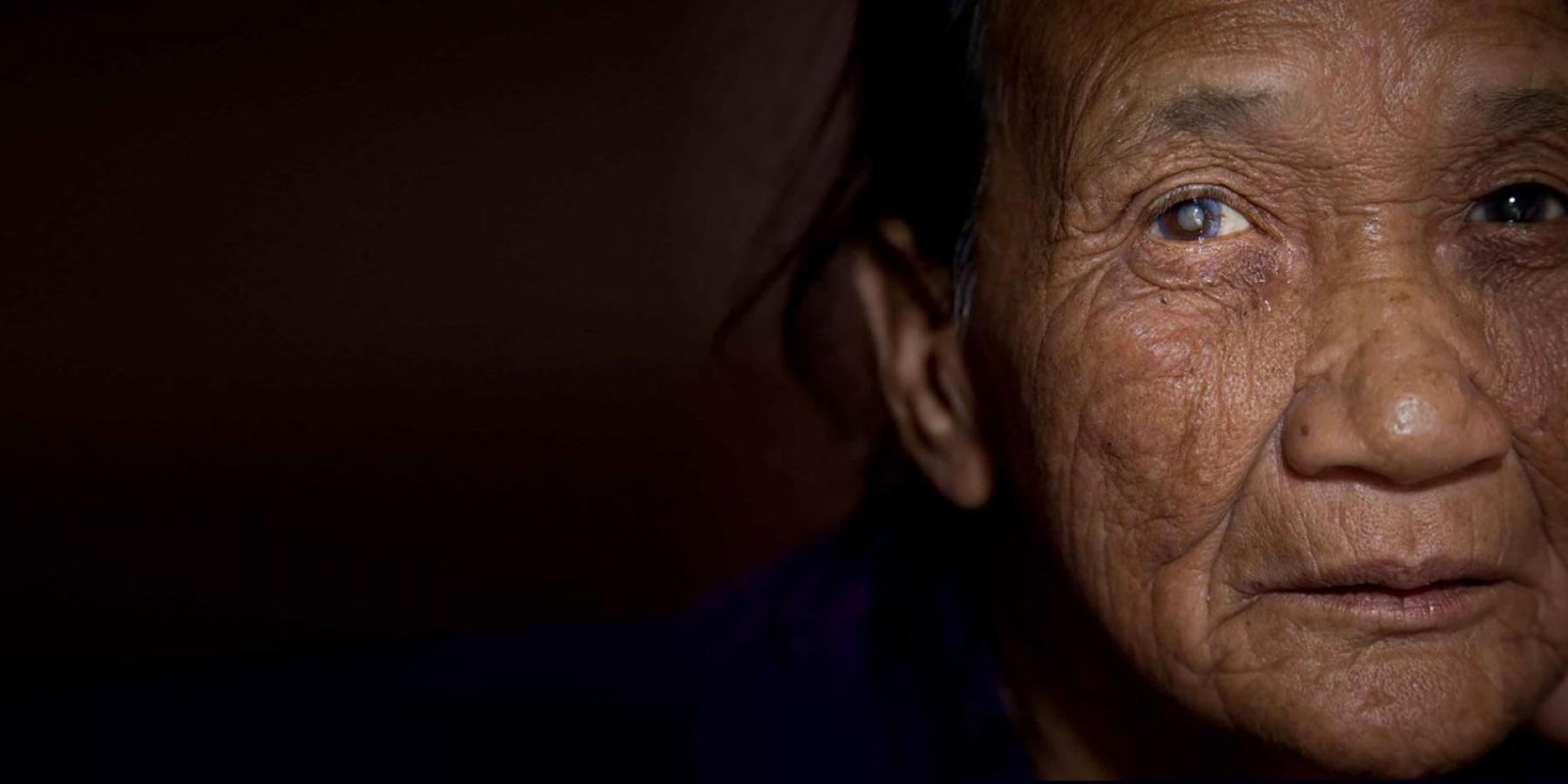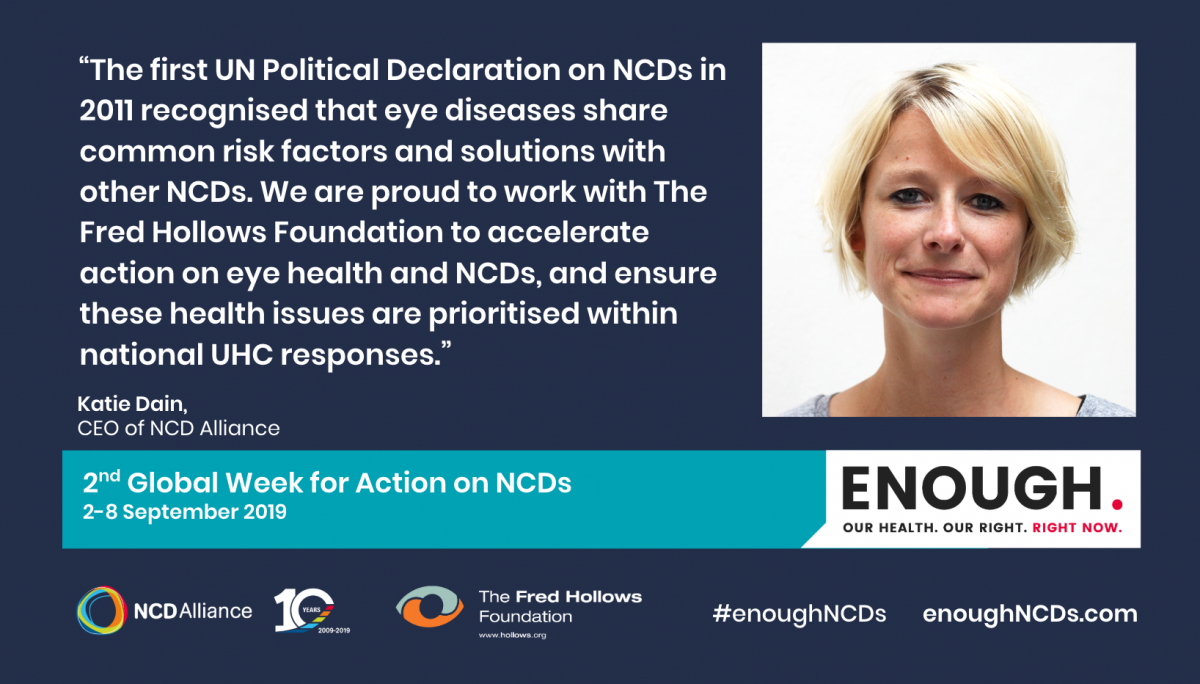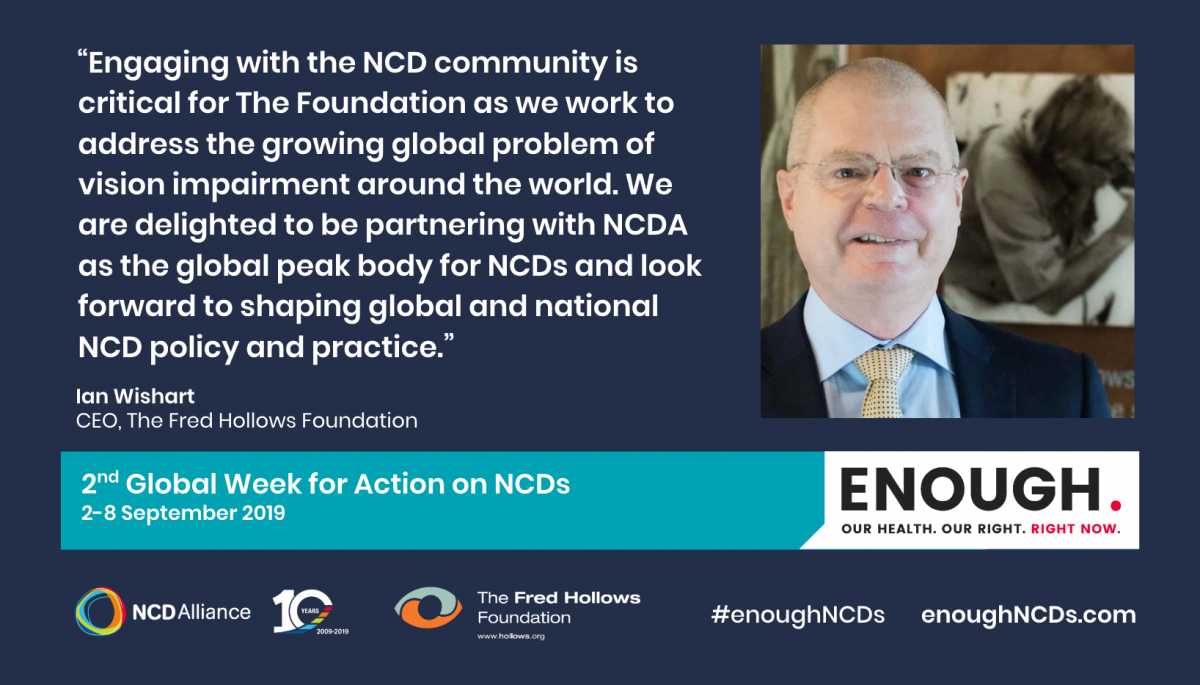The NCD Alliance (NCDA) is pleased to announce the launch of a new partnership with The Fred Hollows Foundation, to raise the profile of eye health conditions as an important part of the movement to combat noncommunicable diseases (NCDs) around the world.
NCDs are collectively responsible for almost 70% of all deaths worldwide, and are a common cause of preventable suffering, stigma and disability. There are more than 2 billion people around the world currently living with a vision impairment and as with many other NCDs, eye diseases such as cataract, glaucoma, diabetic retinopathy and myopia are preventable or treatable. Almost 90 percent of all people living with blindness or vision impairment live in developing countries and experience poverty, poor nutrition, poor health literacy and gender barriers to health services. Most do not have access to care.
Ahead of the upcoming
UN High-Level Meeting on Universal Health Coverage (UHC) on 23 September 2019, NCDA is joining forces with
The Fred Hollows Foundation to leverage opportunities for action around UHC, with an emphasis on building health systems towards integrated, people-centred care, addressing multi-morbidities, social determinants of health and care to vulnerable populations.
This new partnership will draw on the field experience of The Fred Hollows Foundation, which has restored sight to more than 2.5 million people worldwide by engaging in-country partners and national, provincial and local governments. Building on this expertise, NCDA and The Foundation will work together to encourage the integration of eye care into health programmes and national NCD action plans.
Read more about the NCD Alliance partnerships here.
About The Fred Hollows Foundation
The Fred Hollows Foundation is an international development organisation focusing on blindness prevention and Australian Indigenous health. We are inspired by the life and work of Professor Fred Hollows (1929-1993), an internationally acclaimed eye surgeon and an activist for social justice who championed the right of all people to high quality and affordable eye care and good health. Today The Foundation works in more than 25 countries. The Foundation is committed to alleviating blindness as a means to end poverty, allowing children to attend school, working age adults to work and raise a family, and older people to remain connected to communities and contributing to economic life.


